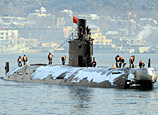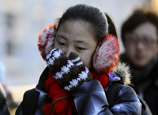
Facing piles of domestic political, economic, and social issues, Japan's new Prime Minister Shinzo Abe has only introduced an old emergency economic policy, and failed to take any other effective measure to solve these issues. He has instead focused on the country’s foreign policy, and made a series of diplomatic moves hailed by the Japanese media as "strategic diplomacy".
Abe started "strategic diplomacy" by calling the leaders of the United States, Australia, the United Kingdom, Russia, Indonesia, India, Vietnam, and some other countries, and sending special envoys, the deputy prime minister, foreign minister, and other cabinet members to visit South Korea, Myanmar, the Philippines, Singapore, Brunei, Australia, and some other countries. After taking office, Abe had hoped to first visit the United States, but the visit was postponed reportedly due to the U.S. president’s tight schedule. Abe now plans to visit Vietnam, Thailand, and Indonesia, three members of the Association of Southeast Asian Nations.
The Japanese media have described the Abe administration's diplomatic moves as new attempts to contain and encircle China.
It is fine if Japan's "strategic diplomacy" is simply aimed at improving its relations with the above countries, promoting its foreign trade and investment, creating favorable external conditions for domestic economic recovery, and enhancing its international status and clout.
Japan will be disappointed if it really hopes to work with the above countries to contain, isolate, and encircle China through "strategic diplomacy," and gain a strategic advantage over China in the dispute over the Diaoyu Islands.
First, China's claim to the Diaoyu Islands is justified. It is Japan that provoked the Diaoyu Islands dispute, and China has just adopted countermeasures. Furthermore, Japan’s unjust and illegal occupation of the Diaoyu Islands made it difficult for the country to achieve international support for its claim to the islands.

















 Sichuan gets its first sperm bank
Sichuan gets its first sperm bank


![]()
